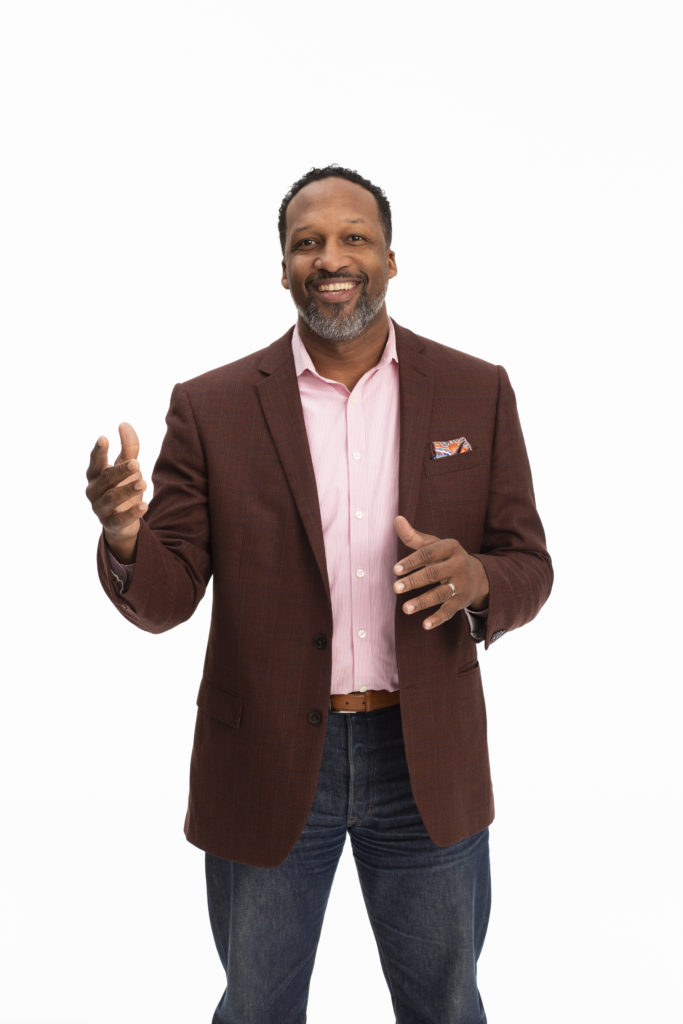Meet the Research Leaders: Carlton Turner
Interviewed by Maria Bertrand

Can you tell me about your IRL project and your role within that project?
I am the community partner in a project focusing on reimagining, both the health infrastructure and food infrastructure, in our small community of Utica, Mississippi. So far it has looked like the community building skills in collecting data in the form of story, learning how to do oral histories, learning how to do interviews, and really understanding how those pieces can aid us in reconstructing a rural community that basically has been decimated by disinvestment and deterioration over the last three decades.
I think that’s so fascinating, using storytelling as this method of both healing and within the Robert Wood Johnson Foundation’s Culture of Health framework.
Stories actually fill in gaps. Everyone brings their story to the table. You can ask five people in the community that have lived around each other their whole life to tell a story about a similar thing, and you’re gonna get five different stories. I think the storytelling in a public space helps to fill gaps. Those gaps are usually filled with assumptions, and assumptions are where biases and where prejudices and envy and all the negative stereotypes we can think about people come into play. In that case, I think it also has the impact of being healing for a community and not just healing for an individual.
Could you speak more to the call and response process of your work?
The way that I understand call and response is through my experiences with devotional services as part of a Southern Baptist church service. Someone makes a call. It may be in the form of a spoken line of a sung hymn. The audience responds. Sometimes the call has a particular response. Sometimes the response is something different, but it’s triggered by the call. Sometimes there’s not enough space to interpret the call, and so what you get is silence.
The way we began our work here at the Mississippi Center for Cultural Production was working with a team of designers and architects. We’ll make a call. Sometimes the call is just a call to order, to say, “Hey, we want to meet. What are you thinking about? What’s happening in the community? What’s happening on your side of the street? What’s happening in your space? What’s happening over there?” That opportunity to share what’s going on helps us to understand that these are the things we need to be responding to as a community.
Sometimes the call is very specific. “Hey, you’ve got 17 acres. Based on what you see as a need in the community, what would you do with this space? Draw it out to the best of your abilities, and help us understand your vision for what’s missing and what can we do to fill those voids in our community.”
Someone will be vulnerable, they’ll put their idea out there. We won’t say, “Oh naw, that’s not right. We shouldn’t do that.” It’s like, “Ok, cool. Why do you think that’s gonna change the situation? What about that is important? Why that in this space, and why not something else? What do you think about this?” So it becomes not just a dialogue between us as an organization and the community, but it becomes this cross-community dialogue. When we see this working at its finest is when the community is leading.
What have I not addressed that you wanted to speak to?
We’re all in this together. If the work is going to be equitable, if it’s going to shift the power dynamics in a way that creates power on the people who are most impacted by an issue, then the community has to be validated as the expert, as the researcher, as the person that has the knowledge and the information.
You can be Ms. Gloria from down the street, and your words should echo throughout institutions. You are a legitimate researcher because you know this information is part of your upbringing, is part of your everyday experience, and you can teach a master class on it if you need to.
 Carlton Turner is an IRL fellow from Cohort 2019-2022 of Interdisciplinary Research Leaders (IRL). To learn more about Carlton and Team ‘Sipp, read about their research project:Equitable Food Futures: Activating Community Memory, Story, and Imagination in Rural Mississippi
Carlton Turner is an IRL fellow from Cohort 2019-2022 of Interdisciplinary Research Leaders (IRL). To learn more about Carlton and Team ‘Sipp, read about their research project:Equitable Food Futures: Activating Community Memory, Story, and Imagination in Rural Mississippi
Interviews conducted, transcribed and condensed by Maria Bertrand, MPH ‘21. Carlton Turner reviewed and approved this blog.
The views represented in this post are those of the authors, not of Interdisciplinary Research Leaders or the Robert Wood Johnson Foundation.

